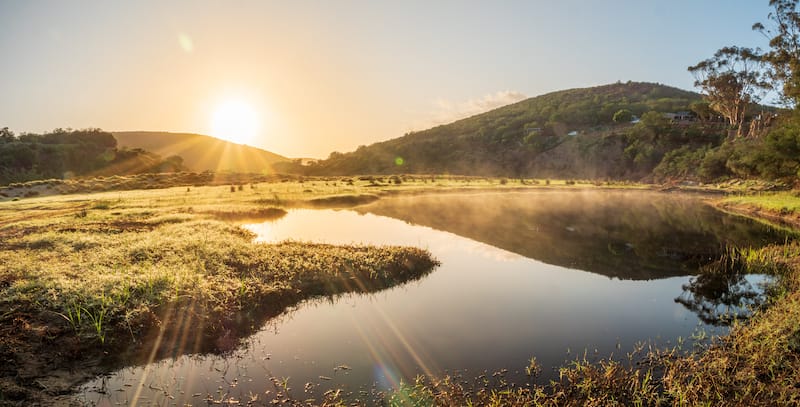The first-ever UN System-wide Strategy for Water and Sanitation published on 16 July confirms that water is a dealmaker for the Sustainable Development Goals and the health and prosperity of people and their natural environment.
Investment in water security and climate-resilient sanitation is a gateway to realising social and economic development objectives, with gains in health, education, energy, food security, gender equality, and more. Every US$1 invested in climate-resilient water and sanitation returns at least US$7; presenting a truly unmissable opportunity to invest in our joint prosperity.
Approximately US$50 billion annually, or US$40 per African per year, is required to achieve water security and sustainable sanitation in Africa by 2030. At least an additional US$30 billion/year. While current sources of funding show only incremental potential for increase, several sources are currently untapped or under-tapped. With appropriate government regulatory frameworks, investors must equally assume responsibility as water stewards and include the full costs of water in their balance sheets and allocate a fraction of their investment to water security.

The solutions proposed by the Continental Africa Water Investment Programme (AIP) and the International High-Level Panel on Water Investments for Africa to transform the investment outlook for water in Africa are in line with the Strategy, which proposes five entry points for collaborative action. These can be translated into transformative steps for the African water and sanitation sector as follows.
Lead and inspire collective action on water and sanitation
Governments are pivotal in influencing the enabling environment for water investments. When water security and sustainable sanitation are prioritised as part of national and continental agendas they can contribute meaningfully to climate change adaptation, energy and food security, and job creation. Action must take place at all societal levels enabled by conducive laws, policies, regulations, and financial instruments.
Engage better for countries by leveraging whole United Nations system support and by mobilizing stakeholders and partnerships for water and sanitation.
Water security in Africa will increasingly rely on private finance, given the insufficiency of public funds and the private sector’s potential contribution to water business efficiency. Africa’s Rising Investment Tide report, published in 2023 by the African Union Commission and International High-Level Panel on Water Investments for Africa, found that an additional US$10 billion a year could be mobilised for water security from African pension funds and other institutional investors.
For this to happen, open dialogue between governments, water sector players, and institutional investors is needed to develop relationships and trust. Matchmaking platforms and investment forums can bring together the supply and demand for water finance with a special focus on climate resilient, blended finance, inclusive, and gender transformative approaches.
Align UN system support for the integration of water and sanitation issues across sectors and mainstreaming into intergovernmental processes;
Political leadership at the highest level is required, with broad cross-sectoral whole-system approaches to the development and implementation of national water investment strategies, programmes, and plans. We have already seen leadership from the governments of Zambia, Zanzibar, Tanzania, and Botswana in developing national water investment plans with an integrated approach.
Considerable domestic resources can be mobilised through valuing water-related risks and internalising the environmental costs. Double materiality recognises the deeper interconnectedness of different stakeholders through the common goods they use, enabling a societal perspective and leading to different investment decisions.
Accelerate progress and transformational change by unifying UN system support through the five SDG 6 global accelerators.
Stronger institutional regulation for water investments is required – possibly through incentives and penalty structures related to water efficiency across multiple industries to lead water stewardship, biodiversity, and ecosystem protection efforts.
The scope to increase current levels of official development assistance (ODA) is limited. ODA should be used to de-risk water investments and leverage larger funding streams, improving the implementation capacity and quality of bankable projects and strengthening international cooperation by aligning technical and financial support with regional, transboundary, and national water investment programmes, strategies, and plans.
Account for progress through joint review and learning.
The AIP-PIDA Water Investment Scorecard enables governments and stakeholders to track progress, enhance mutual accountability for results in the mobilisation of water investments, and promote peer review mechanisms at all levels: continental, regional, national, subnational, and community.
The Scorecard was adopted by the African Union Development Agency-NEPAD as part of the Programme for Infrastructure Development in Africa (PIDA) in February 2022. It tracks progress according to thematic indicators aligned to metrics associated with an environment that enables water investments.

